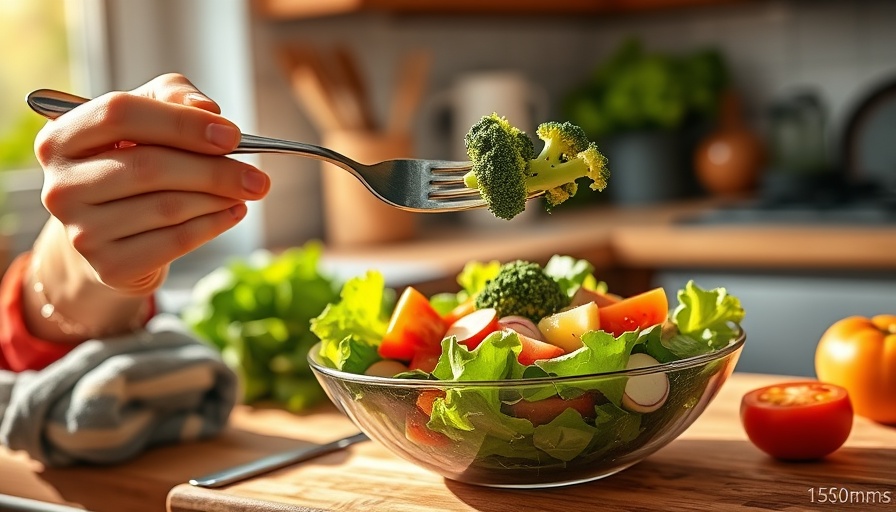
The Hidden Health Benefits of Eating Vegetables First
In the ongoing narrative about healthy eating, the order in which we consume foods is increasingly coming under the microscope. Traditionally, the debate has circled around whether eating vegetables before carbohydrates can positively impact our health. Research suggests that this may hold water, particularly regarding how our bodies process different foods and their effect on blood sugar levels.
A Closer Look at Digestion
The digestive process begins the moment food enters our mouths. Chewing and mixing food with saliva initiates the breakdown of starches into simpler sugars thanks to the enzyme amylase. As food travels down the esophagus, it enters the stomach, where it undergoes further mixing with gastric acids and enzymes before making its way to the small intestine. Notably, meals consisting of high protein, fat, and fiber tend to exit the stomach more slowly than those relying primarily on carbohydrates, making the timing of consumption increasingly relevant.
Does Eating Order Matter?
For years, dietary recommendations have rotated around various eating orders—from the protein-carp-hype of the 90s to modern-day veggie-first advocacy. However, recent insights suggest that starting meals with vegetables may not just be a fad. The logic stands that consuming fiber-rich vegetables first fills the stomach with fewer calories, often leading to lower overall food intake, especially regarding high-carb options like pasta or bread.
The Real Impact on Blood Sugar
Eating vegetables as the first course can aid in controlling blood sugar levels more effectively than indulging in carbohydrates right away. When carbohydrates are consumed alone or as the initial part of a meal, they are digested rapidly, leading to spikes in blood sugar. On the other hand, fiber-rich veggies create a buffer, slowing the rate at which sugars enter the bloodstream.
Long-Term Trends in Dietary Practices
With a growing awareness of obesity and diabetes as pressing global concerns, there’s been a significant shift toward mindful eating. Starting meals with vegetables not only meets the World Health Organization's recommendation for daily vegetable intake but also plays a role in combating the obesity epidemic. Studies show that people who eat more vegetables tend to maintain healthier body weights, which can reduce the risks of chronic diseases associated with high carb intake, such as type 2 diabetes.
Common Misconceptions About Food Order
Many adopt rigid rules around food combinations—such as not mixing proteins with carbohydrates or fats—based on anecdotal dietary advice or popular diet fads. However, the reality is nuanced. Correct meal order plays a role in digestion, but balance and moderation are paramount. Psychology also plays into this; enjoying a variety of foods is essential for long-term adherence to a healthy diet.
Practical Tips for a Vegetable-First Diet
If you're looking to implement a vegetable-first approach into your daily meals, consider these practical steps:
- Start with a Salad: Kick off lunch or dinner with a salad loaded with a variety of colorful vegetables.
- Incorporate Veggies in Snacks: Instead of chips, try snacking on carrot sticks, cucumber slices, or bell peppers with hummus.
- Experiment with Smoothies: Add leafy greens to your smoothies; fruits will mask the taste while you consume your greens.
While the question of whether you should eat vegetables before carbohydrates may not have a one-size-fits-all answer, evidence supports the notion that doing so leads to better blood sugar control, promotes satiety, and enhances overall nutrient intake. As we strive for healthier living, understanding the benefits of what and how we eat becomes crucial.
Conclusion: A Path Toward Healthier Eating
Recognizing the influence of food order on digestion and overall health empowers individuals to make informed dietary decisions. Starting with vegetables might just be one key strategy on your journey to better health. Why not join the growing trend and give it a try? Your body—and taste buds—may thank you.
 Rij toevoegen
Rij toevoegen






 Rij toevoegen
Rij toevoegen



Write A Comment